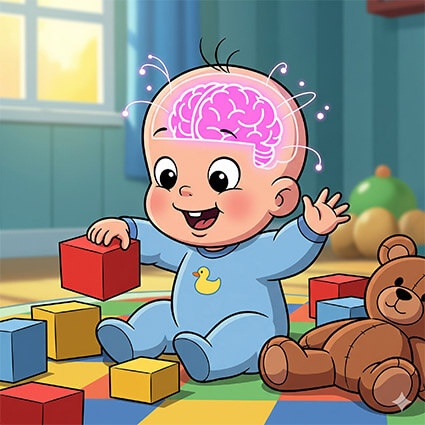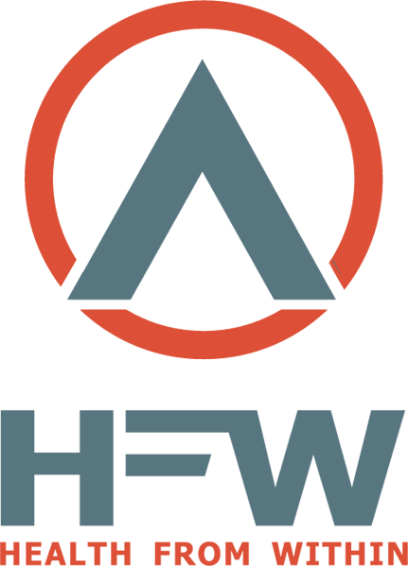 What if I told you that your baby’s brain doubles in size and forms over one million new connections every second during their first year of life? That’s an incredible fact, and it means those first 12 months are the most critical time for your baby’s neurological development.
What if I told you that your baby’s brain doubles in size and forms over one million new connections every second during their first year of life? That’s an incredible fact, and it means those first 12 months are the most critical time for your baby’s neurological development.
But let’s be honest, when you take your baby to their checkups, the doctor usually focuses on whether they’re hitting the basic milestones on time. While that’s important, it often misses a crucial question: is your baby’s nervous system working as well as it could be?
If you’ve ever had a gut feeling that something’s not quite right with your baby’s feeding, sleeping, or development, or you just want to make sure you’re giving them the best possible start, this is for you.
The Amazing Science Behind Your Baby’s Brain
According to the Harvard Center on the Developing Child, that first year is when your baby’s brain is at its most adaptable. During this time, it’s building the foundation for everything—from their coordination and health to their emotional regulation for the rest of their lives.
So why are so many parents told to “wait and see” when they bring up real concerns about feeding issues, sleep problems, or excessive crying? This approach completely misses the window when gentle support can make the biggest difference. A baby can technically “pass” their developmental screenings while still compensating for deeper neurological issues that could affect them for years to come.
The Hidden Meaning of Early Milestones
Your baby’s early milestones tell a story about their neurological development.
- Breastfeeding: Their First Neurological Test - Your baby’s ability to breastfeed successfully is a major sign of their neurological health. It requires multiple nerves and muscle groups to work together perfectly. If you notice issues like a shallow latch, gagging, or your baby getting exhausted while eating, it might be a sign that their nervous system needs a little support.
- Head Control: The Foundation - When your baby starts to hold their head up around 8 to 12 weeks, it shows their neck muscles and spine are developing correctly. Challenges like a persistent head tilt or trouble with tummy time can be early red flags. Instead of waiting for them to grow out of it, it’s worth taking a closer look.
- Crawling: The Most Important Milestone - Did you know that crawling is one of the most significant milestones? When a baby crawls, it helps connect the left and right sides of their brain, creating a solid foundation for skills like walking and even reading later on. So, if your baby skips crawling or shows asymmetrical movement patterns, it’s more than just a preference—it’s valuable information about their neurological development.
Understanding “The Perfect Storm”
Sometimes, a combination of stressors can overwhelm a baby’s developing nervous system. Understanding this isn’t about guilt—it’s about recognizing that your baby’s body has been through a lot.
- Prenatal Stress: Chronic stress during pregnancy can affect your baby’s brain development, even while they’re still in the womb.
- Birth Interventions: Sometimes medically necessary, interventions like forceps or C-sections can put pressure on a baby’s delicate head and neck, contributing to neurological stress.
- Stress After Birth: Ongoing challenges like feeding difficulties, disrupted sleep, or even early exposure to antibiotics can push a baby into a “fight or flight” state, making it hard for their nervous system to calm down and develop optimally.
Why the Traditional Approach Falls Short
Your pediatrician might check a box saying your baby can roll over, but they typically aren’t assessing the quality of that movement. They don’t usually check for common issues like spinal misalignments (aka “subluxation”) or imbalances in the nervous system (aka “dysautonomia”) that can result from “The Perfect Storm.” These functional problems are often missed by standard tests but can have a huge impact on how your baby eats, sleeps, and develops.
A Different Approach: Neurologically-Focused Care
At Health From Within in Orland Park, IL, we take a different approach. We focus on helping your baby’s nervous system function at its best from the very beginning. We use gentle, non-invasive technology like INSiGHT Scans to get a clear picture of where stress and dysfunction might exist in your baby’s nervous system. These scans can show us if their nervous system is balanced and symmetrical or if there are areas that need support.
Trust Your Gut
As a parent, you know your baby better than anyone. If you have a feeling that something isn’t right, trust that instinct. The first year is too important to just “wait and see” when you have concerns. We’re here to help.
Don’t hesitate to reach out to Health From Within in Orland Park, IL today to schedule a consultation. If you’re not local to us, you can find a trusted provider in your area by checking out the PX Docs directory.
Ready to take the next step and give your baby the best possible start?
CONTACT US
